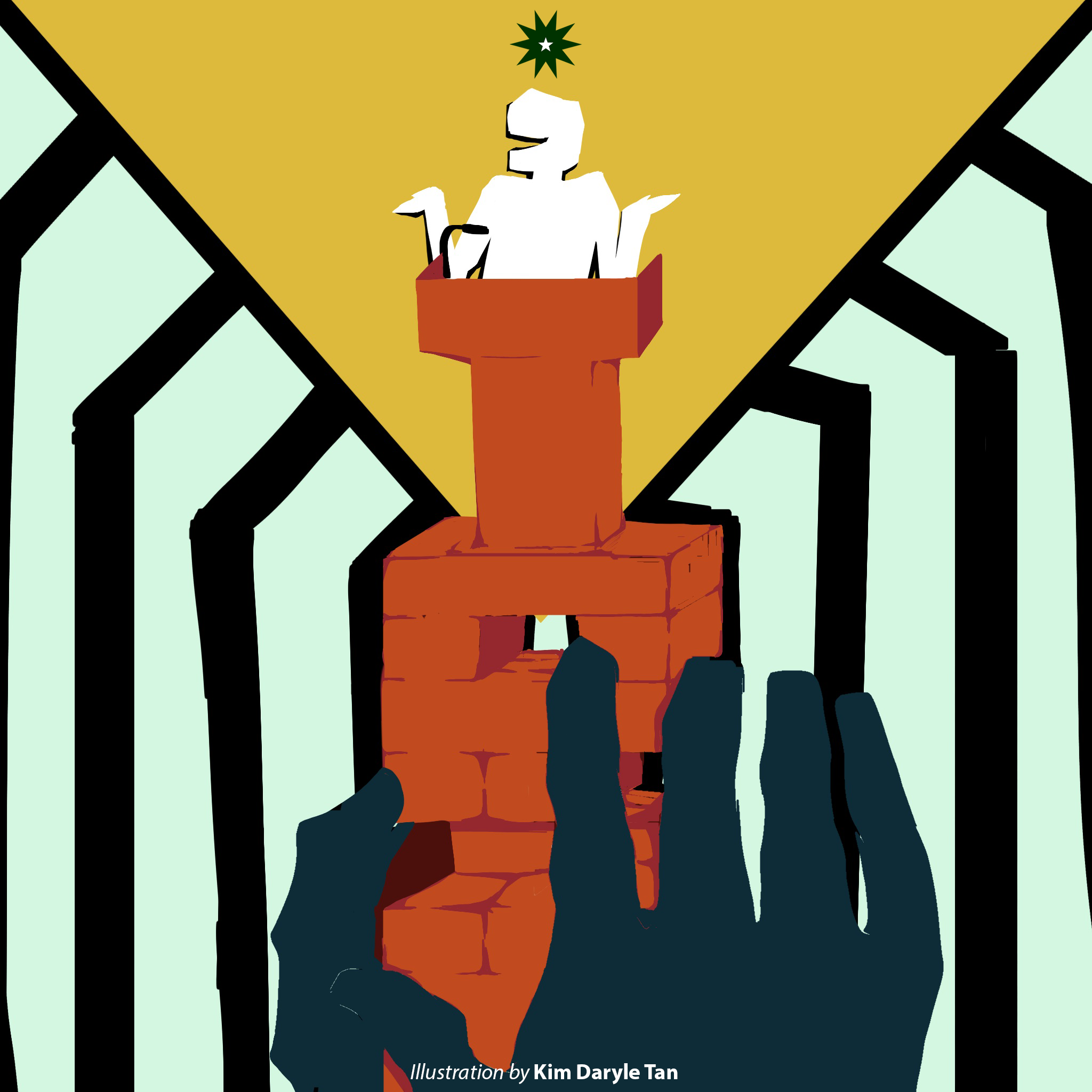Even as the voting for University Student Government (USG) officers draws near, the Election Code currently in effect is still “not really foolproof” and “can be circumvented,” admits DLSU Commission on Elections (Comelec) Chairperson John Christian Ababan.
With the Legislative Assembly (LA) introducing revisions to the election policy every school year— for provisions on the application and approval of candidates, campaigning, and voting procedures, among others—the body is still expected to undertake discussion on the Election Code, based on their most recently publicized agenda as of press time.

Discovering gaps
Along the line of Ababan’s comments on the quality of the USG’s election law, he also assures that Comelec was able to identify the loopholes that allowed candidates and political parties to circumvent the Election Code.
Examining the most recent public version of the legislation, a certain flaw surfaces in the provisions for corresponding penalties for election- and campaign-related offenses. In Article VI, Section 5 of the code, a candidate shall face suspension from campaigning for one or two days after committing one or two major offenses, respectively—while a third elicits disqualification—during the campaign period. Ababan clarifies that because the election period encompasses the time for campaigning, the same offenses committed during election season but before campaigning still count and have the same consequences. However, The LaSallian discovers that for major offenses committed post-campaign period, there is no prescribed penalty.
The Comelec head affirms that this was indeed a loophole, but he also notes that the body can seek help from a higher office. “We can ask [the Office of Student Leadership Involvement, Formation and Empowerment] because we can say that they (offending candidates or parties) committed a major offense outside the campaign period, and there is nothing in the Election Code [to address the issue],” he explains.
Giving her thoughts on the matter, former 70th ENG LA Representative Nina Lagera, who co-authored the 2018 resolution calling for revisions to the election law, says that although reviewing the provisions in question was among their objectives, the part regarding penalties might have been overlooked. She adds that these were ”never really discussed even [with] Comelec.”
She narrates that when the LA went over the provisions, the code was already clear to Comelec and the political parties present. Lagera further relays, “So I think there was a consideration but then when we went over them, it was made clear naman. It was a consensus that there was no need to revise anything else there (penalties).”

Problems with enforcement
Despite flaws in the legislation, Comelec, being in charge of the enforcement of the Election Code, maintains that it exerts effort to make sure that the policies therein are not violated. One way it does this is through seminars that inform candidates and parties about the contents of the code, including the offense provisions. Ababan, however, does not
categorically say whether the initiative is an effective deterrent against infractions: “In a certain way, yes [it is effective]. In a certain way, no [it is not effective]. There are still candidates who commit violations, especially the harassment [violation] and the loitering [violation].”
While Comelec usually observes loitering, as Ababan points out, it also receives information of voters allegedly being harassed, which he says can occur far from polling booths—where Comelec Commissioners are stationed to watch out for offenses. Even though alleged voter or elections- related harassment victims are encouraged to file their grievances, Ababan discloses that the poll-governing body does not receive formal complaints from voters. “That is disheartening for us because we hear a lot of harassment cases and we cannot act on [them] because no one is complaining,” he expresses.
Lagera, on the other hand, illustrates how political parties use inactive members to cross the Comelec-set boundaries in polling booths that are off-limits to political parties. She reveals that although parties declare a list of active core members, there are non-active ones, who are excluded from the listing, that only get involved during election period. “Let us say [a person is not active] in that core list, so that means [he or she] can cross the [boundary]… the tape put by Comelec,” she describes.
The need for improvement
Identifying what improvements have to be made in the Election Code, Ababan recommends having certain requirements—though he did not elaborate on what or of what type—and addressing ambiguities in the provisions for campaigning and its intended duration.
But for Lagera, besides addressing the loopholes in penalty provisions, the Election Code must elaborate on Comelec’s role during every election period. She states, “I think there is a need to further clarify the role of Comelec especially during voting period so as to ensure that the offenses will not be committed by the parties [or] by the candidates, or there will not be any harassment involved.”
with reports from Carlos Doble
